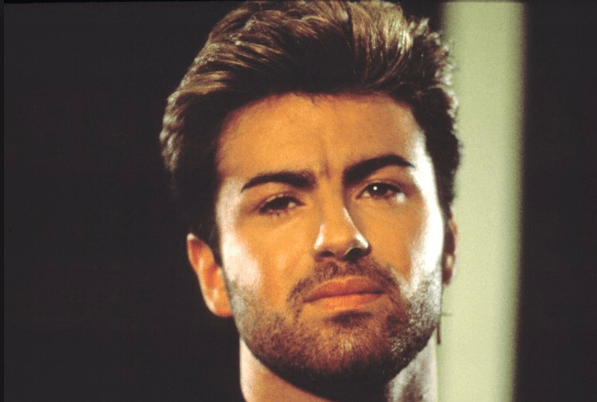A couple of weeks ago, George Michael announced he was collaborating with another songwriter, Shahid Khan, and for his fans (myself included) it was set to be a highlight for 2017. The strange thing about his music was that it just got better, even if his newer releases had only a fraction of their earlier profile. Some of his greatest songs (like Waltz Away Dreaming with Toby Bourke, above) are hardly known at all. He’d go through quiet phases, followed by an creative bursts and he might well have managed one again. But about an hour ago, it was announced that he has died, aged just 53.
George Michael’s voice could be recognised, instantly, anywhere. It electrified any song and his achievements as a vocalist would have guaranteed his place as one of the greatest musicians of recent times even if he hadn’t written any songs. As it stood, he wrote songs that people have never stopped playing. Last Christmas was, again this year, the most-played of all Christmas songs. When he wrote Careless Whisper, his friends teased him – how could a tune with the line “guilty feet have got no rhythm” ever take off? But it did: it was played world over, and still is. He is now the single most-played artist in British radio. Freedom, Wake Me Up, Faith, I’m Your Man, Cowboys & Angels, Edge of Heaven – the musical legacy he leaves is nothing short of extraordinary. His music helped define the decade – when Charles Moore needed a title for the second volume of his Thatcher biography, he used a Wham! song, Everything She Wants.
It’s not very cool to like George Michael. “I’m not what stars are made of,” he once said. “I’m not Prince and I’m not Madonna”. He was Georgios Kyriacos Panayiotou, who grew up in north London and set up Wham! with his friend Andrew Ridgeley. From 1982 to their breakup in 1986 they produced some of the best songs of the decade, almost all of them written by Michael. He was always uncomfortable with being a teenage pin-up: he knew was, even then, play acting (“I was every little hungry schoolgirl’s pride and joy” as he later wrote in Freedom 90) and his heart was not in the act. He was keen to go off in a new direction, with more serious music that didn’t fit in the Wham! brand.
His extraordinary solo career properly showcased the range and emotional literacy of his songwriting – and, of course, his sheer musical ability. Look at the credits on Faith: producing, arranging, keyboards, drums, all instruments on some songs: all G. Michael. To his former manager, Simon Napier-Bell, he was
…the most creatively complete person I ever managed; the only solo artist who can produce his own records alone better than with anyone else. There is virtually no other singer who can do that — not McCartney, nor Madonna, nor Bjork. George knows himself perfectly. And he safeguards himself perfectly. He never writes a song for anyone else because if he did, and it wasn’t a hit, it would look as if his songwriting was failing.
His biographer, Tony Parsons, once joked that he was “more Keith Chegwin than Keith Richards” – here was a world famous singer who didn’t seem to want to fame, or to play the pop icon. He’d even trash his own work: Careless Whisper, he said, was just some tune that came to him on the 142 bus in London. For lyrics he just dumped in “all kinds of totally cliched romantic imagery”. It was as if he was dismayed to see it go global, and stay global.
But Parsons was probably referring to what George Michael called his “dysfunctionality”. He did sex and drugs, but in a way that seemed more sad than rebellious. “I’m not presuming that cruising in itself is dysfunctional, because as a gay man I don’t think it is,” he once said. “But cruising as George Michael? There’s obviously something dysfunctional about that.” His fans didn’t seem to mind. His famous 1998 arrest in a Beverly Hills public loo barely dented his career. “To come out of the closet and be busted in the toilet is probably not the best way of coming out, really,” said Elton John, his onetime mentor. “But he coped with it really well.” He pretty much wrote a song about it: Outside, which led his album of that year, Ladies and Gentlemen. It went straight to no1.
A long line of well-publicised misadventures, even imprisonment on drugs charges, did not destroy his popularity or stature. “I’ve spent 10 or 15 years trying to derail my own career, because it never seems to suffer,” he once joked. “I’m surprised that I’ve survived my own dysfunction, really”. This seemed to baffle those writing about him: how can a star have so many embarrassing secrets exposed, and pay no real penalty?
Easy. His music spoke for itself, and always will do.







Comments